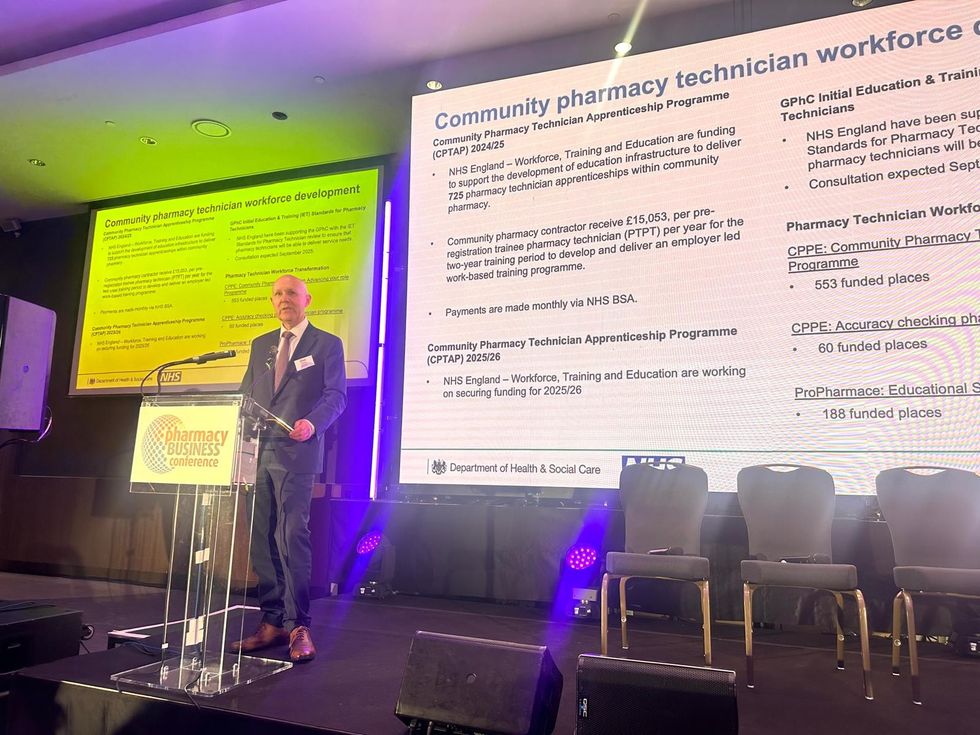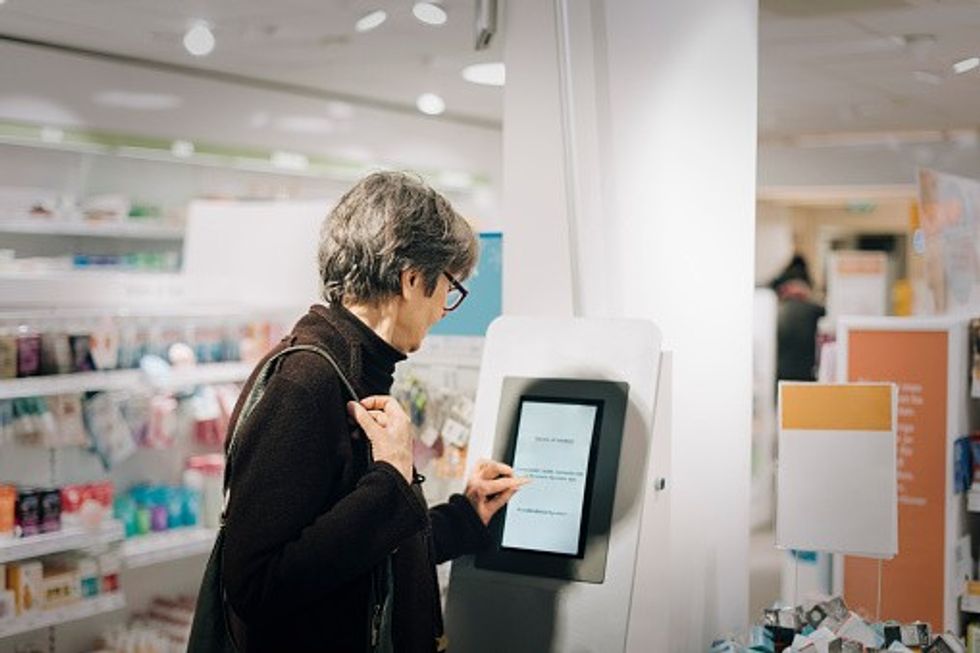Unlocking the potential of OTC medicines - An exclusive Q&A with Maxwellia CEO Anna Maxwell
Over-the-counter (OTC) medicines can empower customers and pave the way for a sustainable healthcare future. By embracing OTC products, pharmacies can achieve greater freedom, stability, and enhanced profitability.
In our exclusive interview with Anna Maxwell, founder and CEO of pioneering consumer healthcare company Maxwellia, we explore their game-changing pharmacy brands leading the way in self-care.
Why pharmacies should embrace OTC medicines?
There’s never been a more critical time for pharmacies to lean into the OTC space. Right now, about 90 per cent of pharmacy income in the UK is tied to NHS funding—a model that’s increasingly unsustainable.[1] We all value the NHS, but it simply can’t afford to cover every treatment at the point of use indefinitely. If pharmacies could achieve even a modest shift in NHS reliance this would mean more freedom, stability, and profitability for the business. OTC medicines are the key to making that happen, offering a way to quickly provide, effective treatments that help customers while reducing the administrative and financial burdens on pharmacists.
What role pharmacies can play in promoting self-care?
We’re amid a healthcare revolution where self-care is taking centre stage. The government is actively encouraging people to take more responsibility for their health, and 78 per cent of adults suggested they would choose self-care as their first option when considering their approach to healthcare.[2]
This is a significant opportunity for pharmacies because three out of four adults want more medicines available from a pharmacy without a prescription.[3] They want relief without the hassle of navigating GP appointments or emergency departments.
For pharmacies, it’s a chance to be the first point of contact, establishing themselves as trusted sources of immediate, reliable healthcare. This shift could save the NHS around £1.7 billion annually by reducing unnecessary GP and A&E visits, but it also transforms the pharmacy into a key player in this self-care movement.[4]
Pharmacists often feel overworked. Could OTC options add to their workload?
That’s an excellent point, and we know how stretched pharmacists are today. OTC medicines, however, don’t add to that burden—instead, they streamline it. Take something like the Pharmacy First Service, which can demand 20–25 minutes per consultation. With an OTC alternative, it can be as simple as a few minutes of advice that any trained pharmacy staff can provide.
At Maxwellia, we work to convert prescription-only medicines to OTC to make these kinds of solutions available. Our goal is to reduce the workload on pharmacists while empowering customers to take charge of their own health.
Share examples of how OTC products are making a difference in customer access and pharmacy revenue.
Absolutely. Two of our products, Evana® and LoviOne®, are great examples. Evana®, which contains tranexamic acid, is now available OTC for women experiencing heavy menstrual bleeding (HMB). About one in three women experience HMB, but they often delay treatment because of the inconvenience of booking GP appointments, waiting for prescriptions, and so on.[5] Now, with Evana®, they can find an effective solution right at their local pharmacy. It’s empowering for customers and helps build trust and loyalty with the pharmacy.
Similarly, LoviOne®—an emergency hormonal contraceptive—has a significantly lower RRP than leading branded alternatives, making it accessible to more women while offering pharmacies a high-margin product that drives both customer satisfaction and revenue. These products simplify access to necessary treatments, provide competitive profit margins, and create a positive customer experience.
Maxwellia’s vision for the future of OTC medicines
At Maxwellia, our vision is to continue expanding the OTC landscape, making innovative, high-impact products available over the counter by 2030 in a broad range of categories. Each new switch represents another tool in a pharmacist’s toolkit, allowing them to treat more conditions directly. We also prioritise education; we know that new OTC products require confidence and knowledge from pharmacy teams. That’s why we invest heavily in pharmacist training, providing the resources and tools necessary to advise customers on these new OTC options with confidence.
This transformation isn’t just about short-term gains—it’s about creating a sustainable, resilient model for pharmacies. With the government promoting self-care, and more people looking to OTC solutions as their first line of defence, now is the time for pharmacies to lead this shift, reduce NHS reliance, empower their customers – particularly women who have been historically underserved by the industry, and secure a thriving future. At Maxwellia, we’re here to support every step of that journey.
[1] Centre for Pharmacy Education. Community Pharmacy Funding. Accessed via Centre for Pharmacy Education website: https://cpe.org.uk/learn-more-about-community-pharmacy/funding/#:~
=Community%20pharmacies%20receive%20around%2090,increased%20significantly%20during%20the%20pandemic.
[2] Self-Care Census 2024, PAGB, p. 9
[3] Ibid. I, p. 11
[4] Ibid. II, p. 3
[5] Women’s Health Concern. Heavy Periods (Menorrhagia) Factsheet. November 2022. Accessed via Women's Health Concern website: https://www.womens-health-concern.org/wp-content/uploads/2022/12/08-WHC-FACTSHEET-HeavyPeriods-NOV2022-B.pdf











 Health Secretary Wes Streeting addresses Pharmacy Conference via video
Health Secretary Wes Streeting addresses Pharmacy Conference via video  David Webb, chief pharmaceutical officer of NHS England
David Webb, chief pharmaceutical officer of NHS England Shailesh Solanki, executive editor of Pharmacy Business
Shailesh Solanki, executive editor of Pharmacy Business L-R: Yasmin Karsan, Pritee Panchmatia and Fin McCaul
L-R: Yasmin Karsan, Pritee Panchmatia and Fin McCaul  L-R: Baba Akomolafe, Rachna Chhatralia, Patricia Tigenoah-Ojo and Raj Matharu
L-R: Baba Akomolafe, Rachna Chhatralia, Patricia Tigenoah-Ojo and Raj Matharu L- R: Nicola Stockmann, Robert Townsend, Atul Patel and Amerjit Singh
L- R: Nicola Stockmann, Robert Townsend, Atul Patel and Amerjit Singh Wole Ososami, lead pharmacist at Westbury Chemist
Wole Ososami, lead pharmacist at Westbury Chemist








 A woman using kiosk at pharmacy store gettyimages
A woman using kiosk at pharmacy store gettyimages  Pharmacist examining commissioning machine in pharmacy gettyimages
Pharmacist examining commissioning machine in pharmacy gettyimages